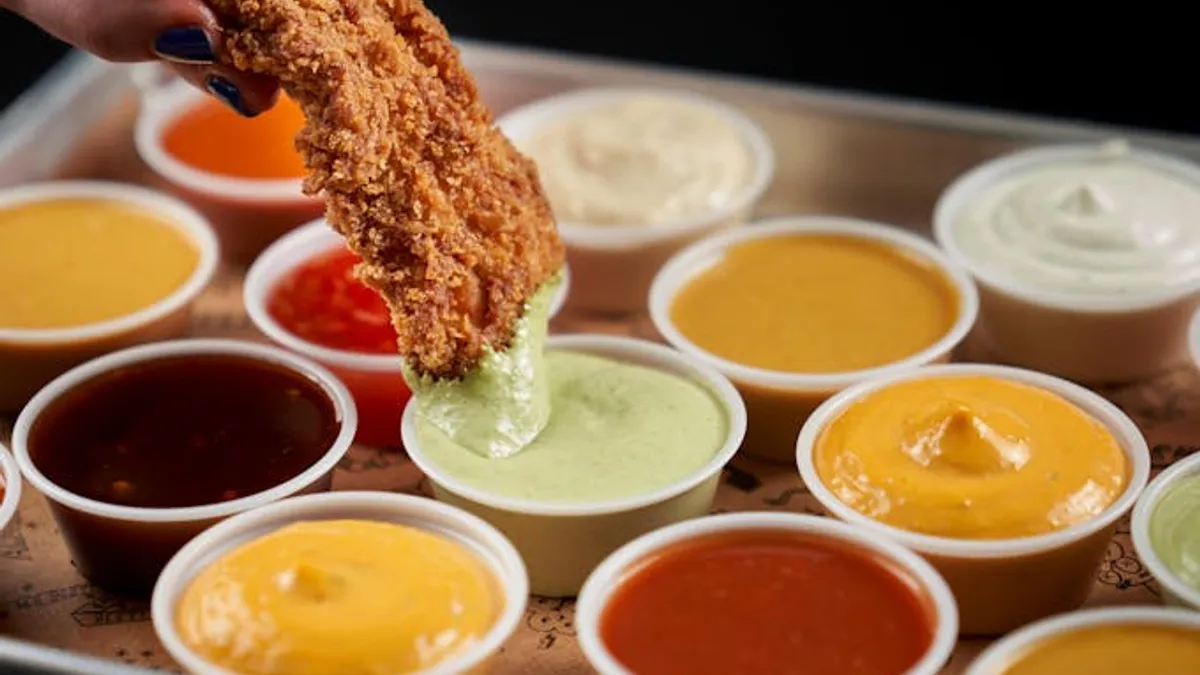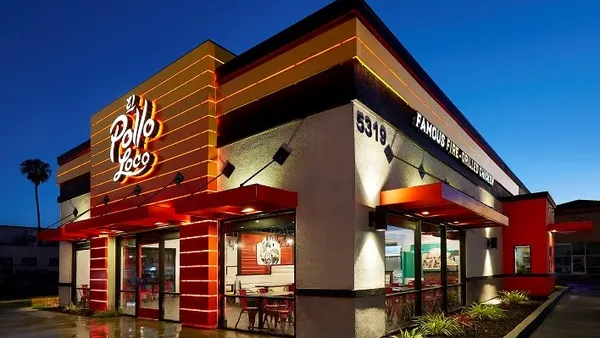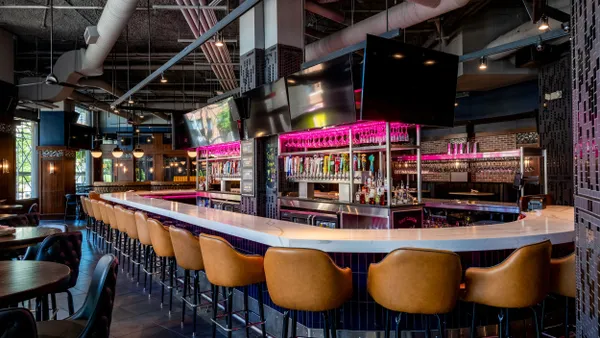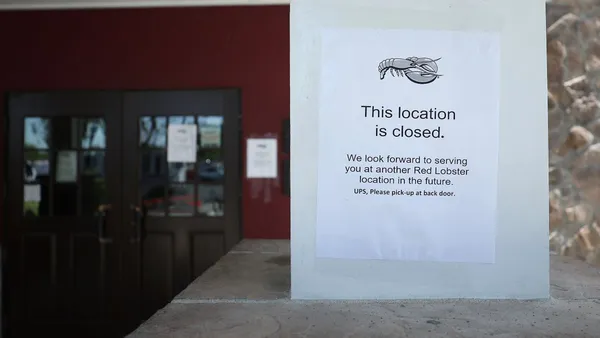Dive Brief:
- Sticky’s Finger Joint, a chicken tender chain that operated 12 units in New York and New Jersey, filed for Chapter 11 bankruptcy protections Thursday, court records show.
- According to an affidavit filed in support of the Chapter 11 petition by CEO Jamie Greer, who has led the chain as interim and later full CEO since August 2023, the chicken chain faced increasing cost pressures as a result of supply shocks and a reliance on third-party delivery apps.
- Sticky’s undertook a variety of growth strategies in recent years, including the launch of a ghost kitchen in Philadelphia that shuttered in May 2021, and a franchising push which ultimately yielded nothing.
Dive Insight:
Stick Fingers grew from $500,000 in sales in 2013 to about $22 million in 2023, according to Greer’s filing, but menu price increases necessitated by inflated chicken and potato prices hurt traffic. Foot traffic also suffered from shorter in-person workweeks in New York City’s office districts: Seven of the chain’s 12 operating stores are located in Manhattan below 45th street.
COVID-19’s impact on New York hurt the chain considerably, forcing it into “significantly greater reliance on food delivery apps to generate business, which had the effect of substantially increasing the Debtors cost structure.”
Sticky’s filing was unusual for recent restaurant bankruptcies in that the Greer’s filing did not cite high labor costs as a major factor pushing the brand to seek Chapter 11 protections.
Sticky’s had, at points, four other locations operating, though it’s unclear from Greer’s filings if all of the 16 stores ever operated by Sticky’s were open simultaneously. Two of the closed units, a Philadelphia ghost kitchen and a store in New York City, closed in 2021. Another unit in New York and one in New Jersey ceased operations in April of this year.
In addition to the shortfall in traffic and the unit closures, Sticky’s faced legal challenges. In 2022, the chain was sued by an older barbecue concept called Sticky Fingers over the similarities in their branding, while in 2021 a court awarded the landlord for the company’s former head office $600,000 in a suit. Greer’s filing says the legal troubles came “at the worst possible time.”
Sticky’s wants to use the Chapter 11 process for “right-sizing their balance sheets and confirming a plan of reorganization that will provide value to their creditors.”
Chicken brands, like Raising Cane’s, Bojangles, Dave’s Hot Chicken and Chick-fil-A have all seen momentous growth in recent years, and even small, regional brands like Haven Hot Chicken in Connecticut have been growing rapidly. But some operators have still felt pressure, despite the menu category’s overall popularity. Two different Popeye’s franchisees filed for Chapter 11 protections between March 2023 and and February 2024.














